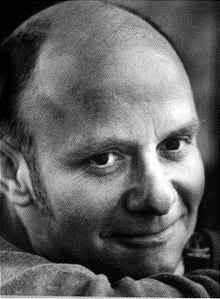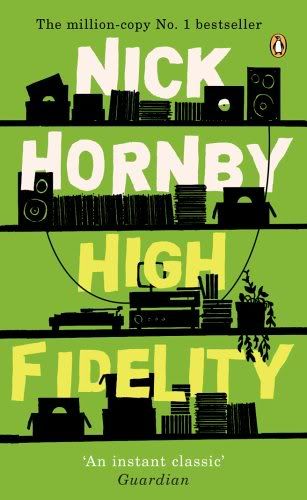Really, I'm not always up to books with cheeky conversations and witty comments. But you know some of the books of that kind weave magic!! You can actually feel the wide grin of the writers in front of their on-going work, imagining their readers' respond. I got that kind of sensation when I read Oscar Wilde, or Irish Murdoch. The serious jokers. The chronic cynics. The life-mockers who love life all the same. The ones that will knock you off your feet with dazzling one-liners out of the blue. Offhand comments on such 'important' matters, like life, or God, or love, or sex fly right through their pages. I do relish on such books, I really do. But then, it's not easy to find such composition without it being too cheesy, too anxious of being funny, so lacking of self-confidence. You can browse through English book section in a German bookshop (well, rest assured they are not many but still...) and find none of those works to be nearly as witty as they should be.
 Some of the contemporary writers do reach the level of mastery, though. Jonathan Safran Foer certainly did. Everything is Illuminated is as funny as fun can be. A tour de force of self-worship, done with a detachment close to a scientific observation, it is a masterpiece of the 28 years old Jewish writer. Another contemporary wit that has successfully reached such level is Nick Hornby.
Some of the contemporary writers do reach the level of mastery, though. Jonathan Safran Foer certainly did. Everything is Illuminated is as funny as fun can be. A tour de force of self-worship, done with a detachment close to a scientific observation, it is a masterpiece of the 28 years old Jewish writer. Another contemporary wit that has successfully reached such level is Nick Hornby.You might have watched ‘High Fidelity’ (Stephen Frears) or ‘About a Boy’(Weitz brothers). What do you think about those movies? Well, if you don't like them, try the books. Goodness gracious, these books are made of laughter, light spirited jolts and a good amount of bollocks (as Horby’s protagonists will surely put it). Not mere bad cheap slapstick jokes, but slapstick jokes manoeuvred with amazing wittiness. He brought them out at perfectly correct moods, and with a good dose of insensitivity. He laughed about all, about death, relationship, hard stuff. But he also joked at man and manliness; you know ... the unimportant things. Gosh, I had good time at trams and trains reading Hornby's works. Take ‘High Fidelity’ for example, it narrates in a clever guise of humour, the contradictory feeling, the guilt and paradox of being a man. Incapable of retaining any straight logic, yet boasting itself as the more logically advanced sex (oh yes, men don't readily produce reason, they produce lists ... name your five top blonde you want to be with...). Being all-emotional yet persistently murmuring its curse as the more emotionally-challenged being (so 'you got on well with your new partner, eh?' means 'did you sleep with him yet?').
 Well, okay, you might find the book funny in a bit-too-vulgar sense. Unlike Wilde or Murdoch, you might even add. But then again, don't you think that the vulgar is not a static area? Do its boundaries not a dynamically moving shade limiting the land of clear conscience? Meaning, whatever vulgar by the time of Wilde and Murdoch might not worth a tickle in the conscience of nowadays defender of ethical values? And what we have in Hornby's now is something that is unthinkable to be spread out in public by the time of Oscar Wilde? (I don't really think so though ... I mean, when did Marquis de Sade wrote his 120 days of Sodom? :) ) So what we read in Hornby's work is just a common cost of being witty ... by being a bit out of necessity.
Well, okay, you might find the book funny in a bit-too-vulgar sense. Unlike Wilde or Murdoch, you might even add. But then again, don't you think that the vulgar is not a static area? Do its boundaries not a dynamically moving shade limiting the land of clear conscience? Meaning, whatever vulgar by the time of Wilde and Murdoch might not worth a tickle in the conscience of nowadays defender of ethical values? And what we have in Hornby's now is something that is unthinkable to be spread out in public by the time of Oscar Wilde? (I don't really think so though ... I mean, when did Marquis de Sade wrote his 120 days of Sodom? :) ) So what we read in Hornby's work is just a common cost of being witty ... by being a bit out of necessity.Anyway, they are funny and refreshing. Personally, I always like the poetry borne out of daily and mundane objects of life. Kind of descriptions you'll find in the books of Arundhaty Roy (yes mbak Lenje, I finally read them) or Steinbeck or Gabriel Garcia Marquez. But it IS refreshing that the same quality of celebration of life daily mundane aspects (such as man insecurity, and man's thought and man's dreams) can still be drawn out of pure wit, in the form of simple jokes, without being at all poetic.